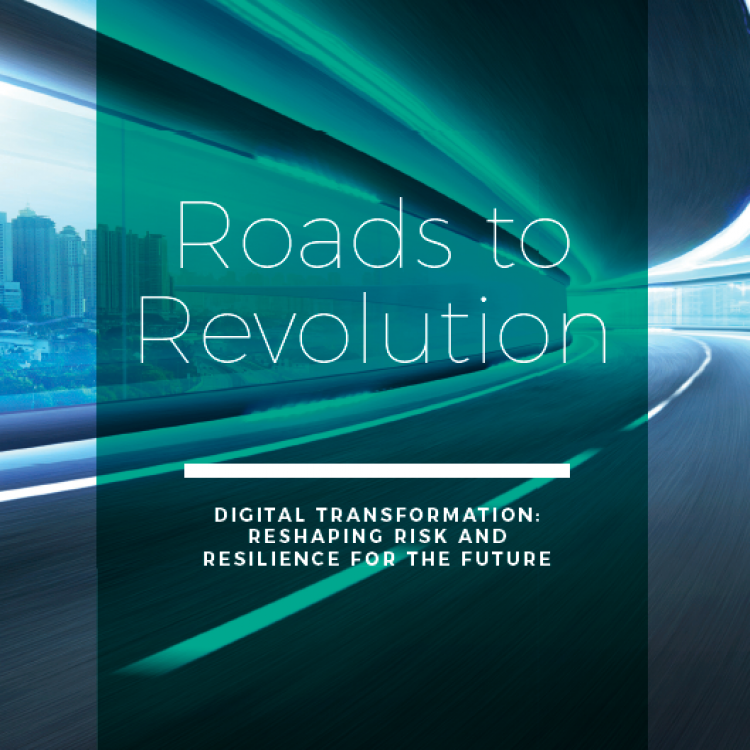Walking the 'Roads to Revolution' is not an option

The latest thought leadership report from Airmic in association with City London Business School, explains the re-wiring of risk management and resilience in the digital age.
Boards need to reappraise their approaches to risk management to take full advantage of the opportunities presented by the so-called Fourth Industrial Revolution, according to a report for Airmic prepared by the City Business School. It advises that the risks associated with digital transformation can be addressed effectively given the right approach and it recommends a way forward based on adapting and adding to principles of resilience that have proved effective in the past.
'Roads to Revolution' answers the question: 'How are organisations transforming their business models to ensure resilience, value and growth in the digital age?' It follows the highly acclaimed 'Roads to Ruin' and 'Roads to Resilience' reports published by Airmic, which examined corporate resilience from the differing perspectives of companies that have had big failures and those that have robust systems in place to avoid them.
The new report examines the way digital technology has become much more than just an efficient way of doing things, but at the core of how firms work. Whilst acknowledging the far-reaching benefits of the Fourth Industrial Revolution, it warns:
"Board members need to understand that organisational resilience alone is insufficient in the digital age. Continuous business model reinvention is necessary not just for future success, but for the very survival of the organisation."
It goes on to say that digital developments have added to the importance of good cyber-governance*, whilst national regulatory guidelines have not always kept pace with the changes:
"The challenges that digital transformation poses to corporate governance are daunting. Legacy corporate governance principles and factors… do not seem adequate to provide effective monitoring, strategy and legitimacy to organisations."
The Airmic Resilience and Transformation Model
In response to these developments, the report updates the Airmic Resilience Model, first unveiled in Roads to Resilience (2014). The original version has proved robust and has five principles, which have been enhanced, with a further three added. The additional components are: 'redesign processes', 'retain stakeholders' and 'reinvent purpose'.
"Roads to Revolution is intended to support boards, executive and risk managers in these exciting times," said Airmic deputy CEO and technical director Julia Graham. "Our report contains a positive message. The risks associated with digital transformation may be unprecedented but they can be managed. And we commend the Airmic 'Resilience and Transformation Model' as a tool and guide for doing so."
The report is currently available as an executive summary and a full version on the Airmic website. The full version contains a series of case studies with successful organisations considered by City Business School. Airmic thanks FM Global, KPMG, Marsh & McLennan, Russell Group and Zurich Insurance for their support and advice.
